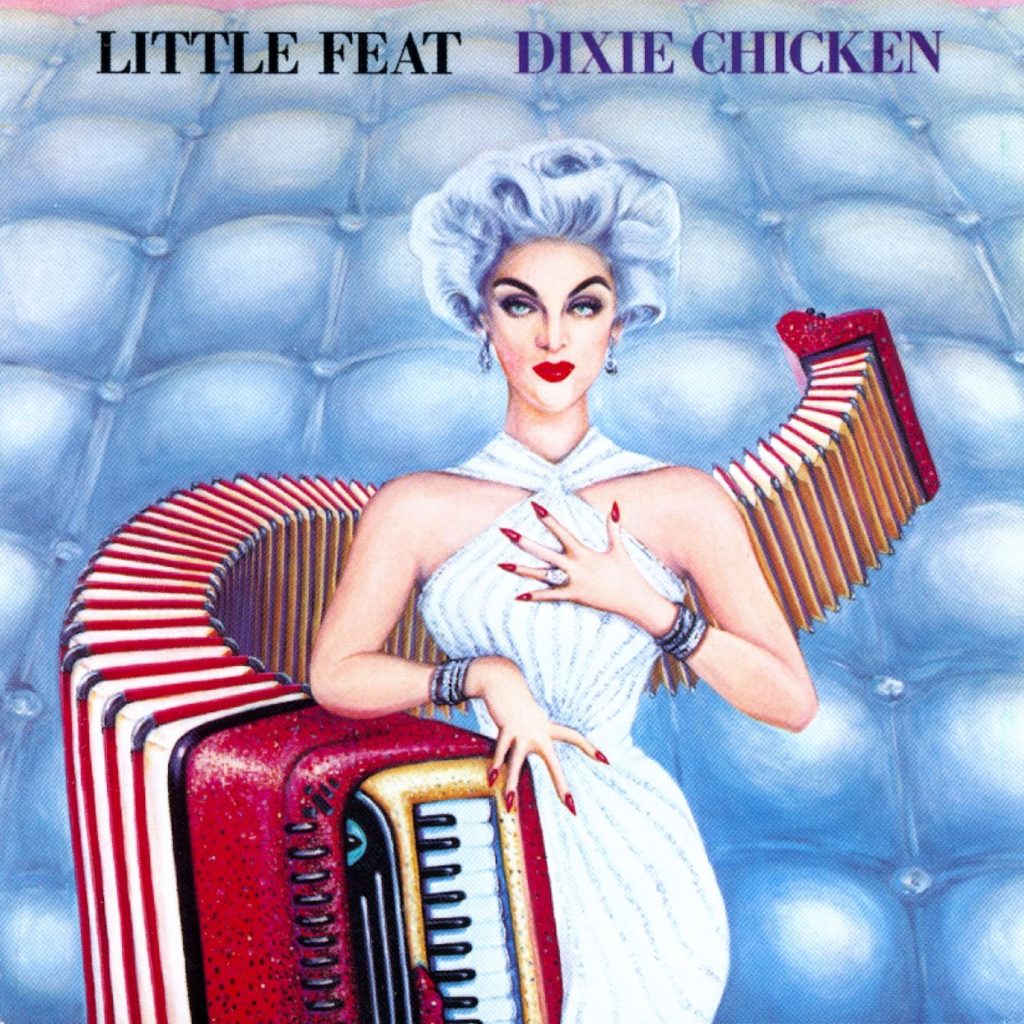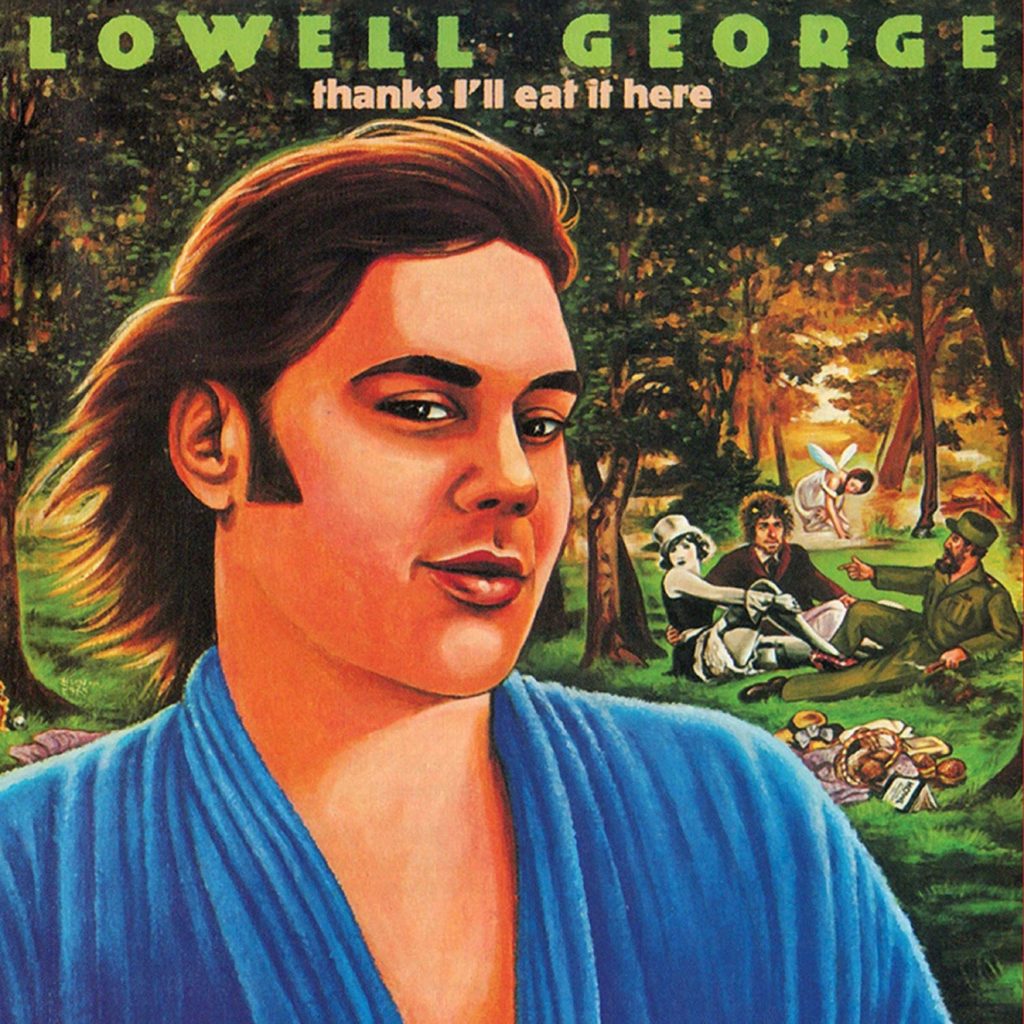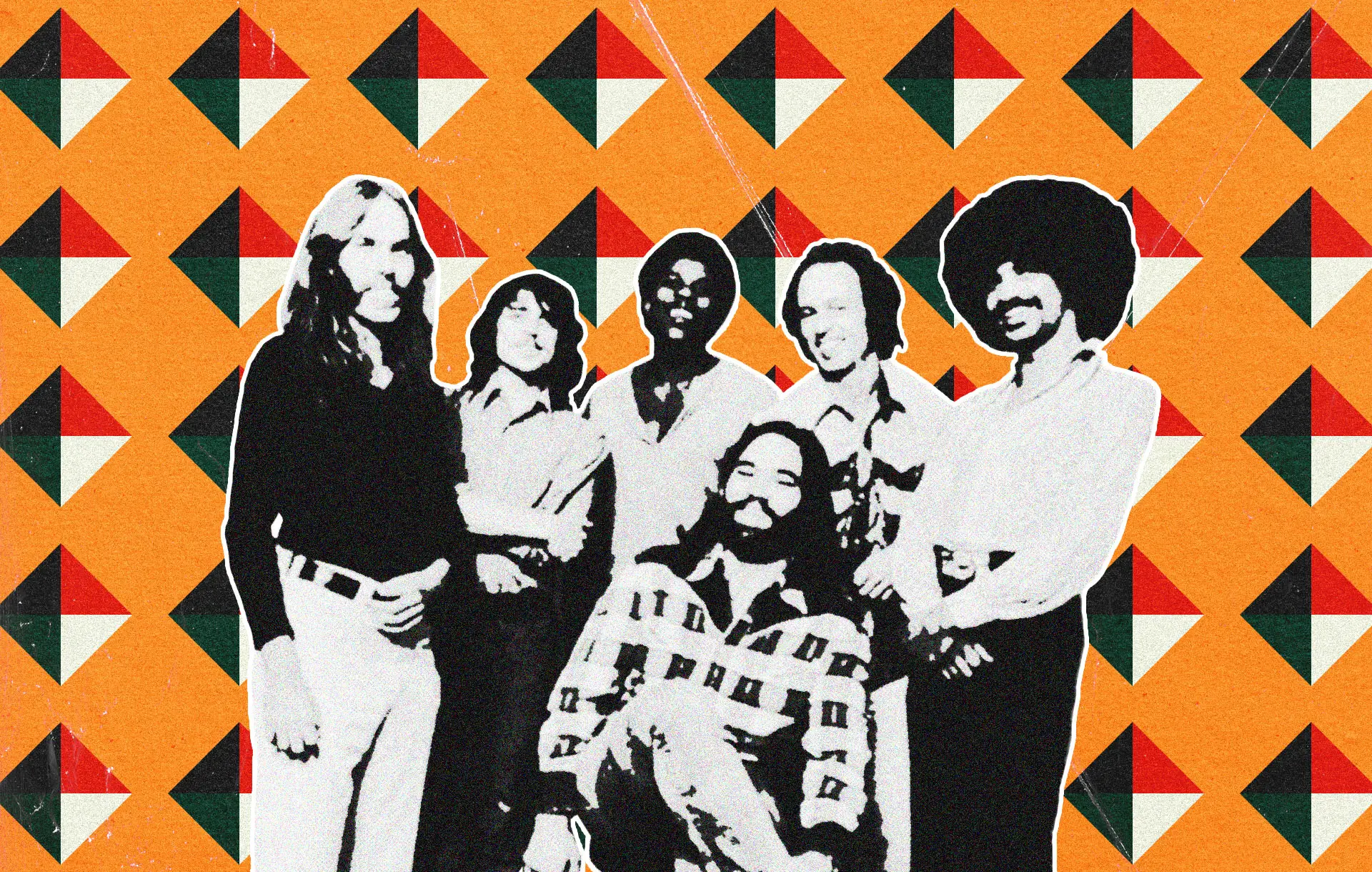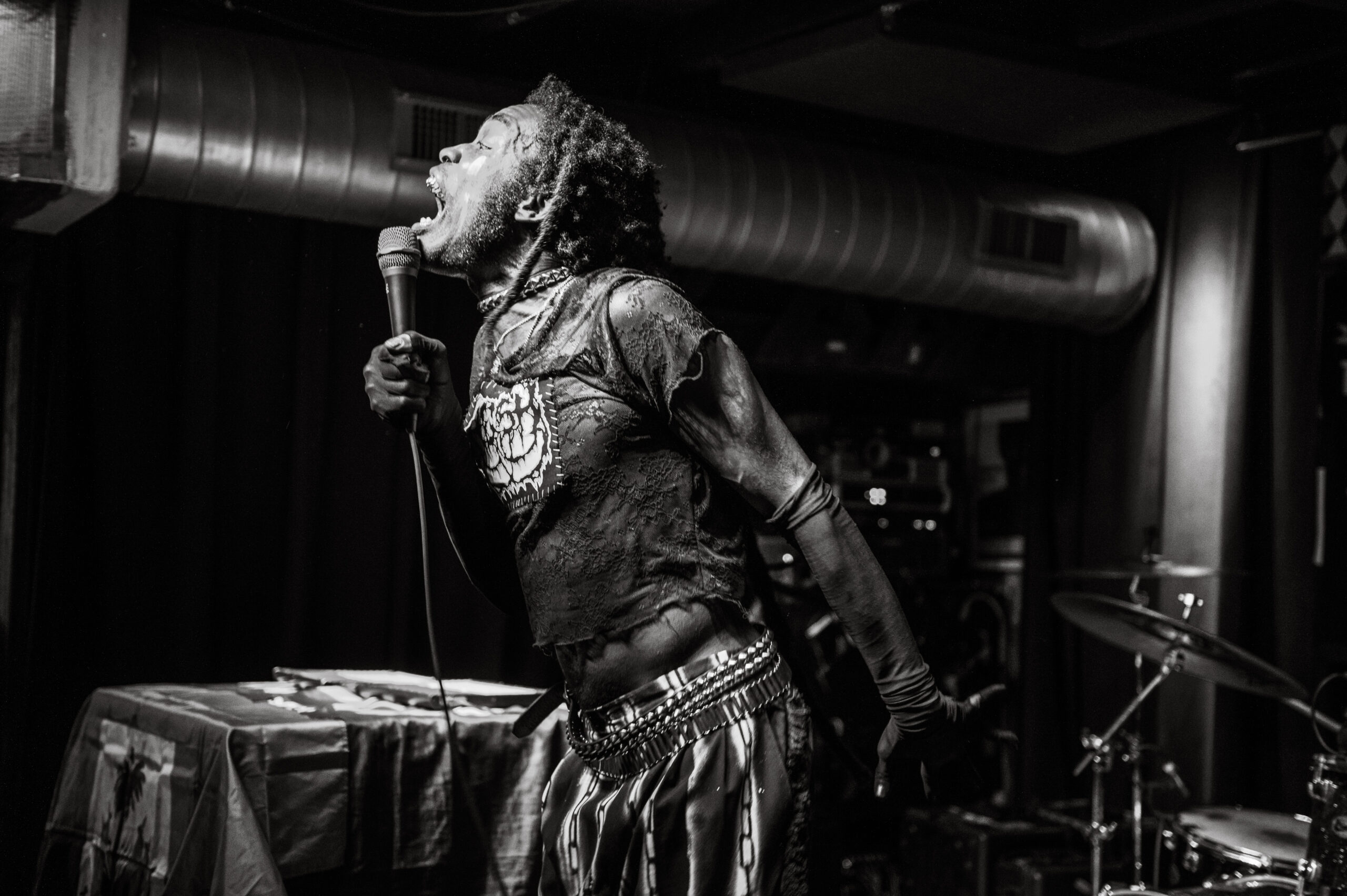In the early 1970s, Lowell George and Little Feat were on the cusp of becoming one of America’s most popular bands. Their mix of swampy blues, rock, and country was a hit with audiences and critics alike, but for some inexplicable reason they never quite broke through to mainstream success. Almost forty years after its formation, Little Feat remains a cult favorite with a passionate following.
It all started with pianist Bill Payne auditioning to become a member of Frank Zappa‘s Mothers of Invention. Lowell George, previously a member of The Factory, was already a member at the time. Yet, neither Payne joined The Mothers of Invention, and George could only be heard on a few tracks on two Mothers and Zappa albums ― Weasels Ripped My Flesh and Burnt Weeny Sandwich ― when, at some point, Zappa fired him.
Their mix of swampy blues, rock, and country was a hit with audiences and critics alike
There are numerous versions of the story of how Zappa fired George. One goes that Lowell came into the studio completely unprepared to work on a song, and when Zappa asked him what he had written, George showed him a doodle of a chicken. Zappa is said to have replied: “That’s it? You’re outta here!” Another story has it that George was simply too much of a perfectionist about his guitar playing, and was unsatisfied that he never got to add any vocals to The Mothers’ recordings.
Yet another says George showed Zappa his song “Willin’,” which he had written while still a member of The Factory. Zappa is said to have told him: “That’s a great song, Lowell. You should go and record that ― and take Bill Payne with you.” Which is exactly what they did.
Along the way, George and Payne picked up The Mothers’ bassist Roy Estrada and old The Factory drummer Richie Hayward to start working on the band. Actually, it was Roy Estrada who was partially responsible for naming the band Little Feat. He had come up with the name “Chicken Little Feat” as a joke, and while it didn’t quite stick, they did end up calling themselves Little Feat.
From strictly blues to modifying, boogie, funk, rock…
Their self-titled debut album was released in 1971 to critical acclaim, but it failed to find a large audience. Even though Zappa fired George, he was instrumental in the band getting a recording deal with Warner Brothers.
The group’s sound was still too experimental for the most part, leaning heavily on the blues variations and George’s brilliant slide guitar playing. It was also the first time the band recorded “Willin,” their all-time signature song. Yet, when it came to the recording session for the song, George hurt his hand, and it was one Ry Cooder who did recording duty.
It would be their second album, Sailin’ Shoes, that would start to find them some traction with audiences. Released in 1972, it included the re-recorded, slowed down version of “Willin,” the one that actually everybody from Linda Ronstadt to The Grateful Dead based their versions on.
Actually, the whole album contained, a set of brilliant songs, many of which became the band’s live show staples – from “Cold, Cold, Cold” to “Tripe Face Boogie.” And even though the album got universal critical acclaim, any form of commercial success didn’t materialize, and it signaled the first of the band’s splits and restructuring.
It was also the first album to feature Bonnie Raitt on slide guitar and backing vocals

By the time their next album (Dixie Chicken) came out in 1973, Lowell George had become the de facto leader of Little Feat. Roy Estrada left to join Captain Beefheart, being replaced by bassist Kenny Gradney, adding along the way another guitarist/vocalist in Paul Barrere and percussionist Sam Clayton.
The album was a departure from anything they had done before, and it found them blending country music with their already eclectic mix of genres.
It was also the first album to feature Bonnie Raitt on slide guitar and backing vocals, who would go on to have a hugely successful solo career. It was actually a returned favor, as George and Payne played on Raitt’s signature album Takin’ My Time, one of the many albums Little Feat members or the whole band played on, including John Cale’s masterpiece Paris 1919, renowned jazz drummer Chico Hamilton, late singer Robert Palmer, as well as many others.
That Dixie Chicken Might Have Been too Tasty
Despite being one of their strongest albums ― if not the strongest ― Dixie Chicken still failed to find a large audience. Again, the title song became one of the modern New Orleans funk prime examples, not only for the band itself.
The following year saw the release of Feats Don’t Fail Me Now, which was another solid effort by the band. It found them returning to their blues roots while still experimenting with different sounds.
The album’s title track, “Feats Don’t Fail Me Now,” is one of their most enduring songs, and, again, it became a concert staple for the band. At the same time, the opener “Rock And Roll Doctor” is a prime example of how and why blues became one of the foundations of rock music.
However, even with great critical acclaim and rousing, almost perfect live shows, no real success came; leading to Little Feat disbanding again in 1973, with Payne joining The Doobie Brothers and Hayward Ike Turner.
The band re-formed the following year, and immediately started working on their follow-up, The Last Record Album (1975). Prior to the recording of The Last Record Album, drummer Richie Hayward had a motorcycle accident, and the liner to the LP release was decorated with copies of his many hospital bills.
The album, it goes without saying, again included some impeccable songwriting, singing, and playing, but also signaled another shift in direction, and a slowly building rift between George and most other members of the band, particularly Payne.
Payne and others were starting to develop an interest in jazz fusion, a direction George despised, exemplified in Payne’s experimentation on “Somebody’s Leavin.” Yet, the album included probably one of George’s best-recorded ballads, “Long Distance Love.”
Lowell George Departs… Literally
By Time Loves A Hero (1977), Lowell George was practically out of the band. The album included only one of his songs (“Rocket In My Pocket”) and it seems that the full-on jazz fusion of “Day at the Dog Races” was one of the breaking points. The other certainly was George’s deteriorating health.
The band was able to come up with one more classic: Waiting For Columbus, which included combined recordings from Rainbow Theatre in London and Lisner Auditorium in Washington, D.C., now considered one of the best live rock albums around, now rightfully getting an 8-CD reissue.
Waiting For Columbus, now considered one of the best live rock albums around
George’s final contribution to Little Feat came in the form of Down On The Farm (1979), an album that found them returning to their bluesy, country-tinged roots.
It was also George’s last album period, as he died of a heart attack a few months after its release, at the age of 34. At that point, Little Feat disbanded, again.

Around this time, Warner Bros. released George’s only solo album, Thanks, I’ll Eat It Here, for which he had signed a contract in 1975. The album was mostly a collection of cover versions that George had been working on as a side project for several years and, in his biography, Rock And Roll Doctor, Mark Brend states that George had hinted he only signed the solo contract to obtain funds to finance Little Feat.
While the remaining members kept on with session work and in various joint combinations, it never amounted to much acclaim and the legend about the original band started to mount. Giving Payne, Barerre, and others the ground to try their hand at another reformation, also adding new members.
This happened first in 1988, and since then, the band has been touring and recording steadily, even if without that certain something that made Lowell George such a special talent.




